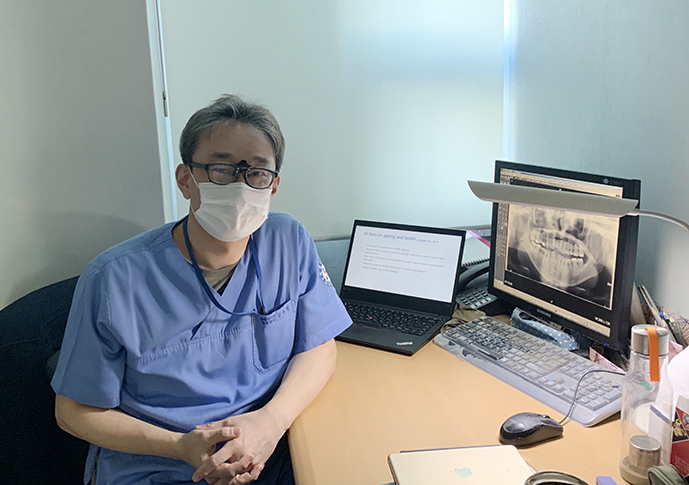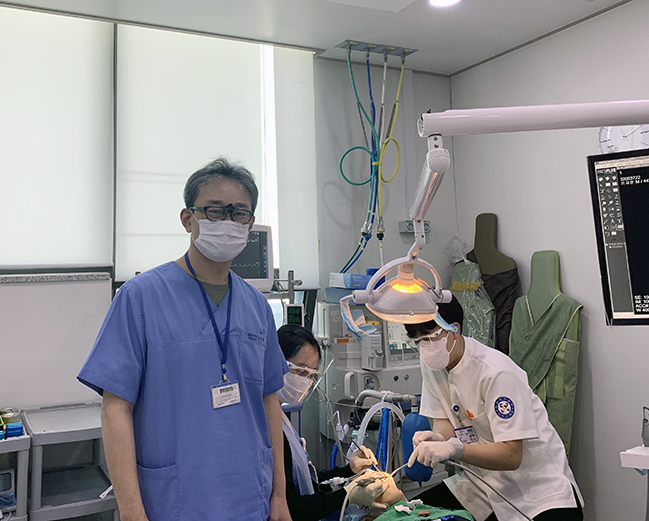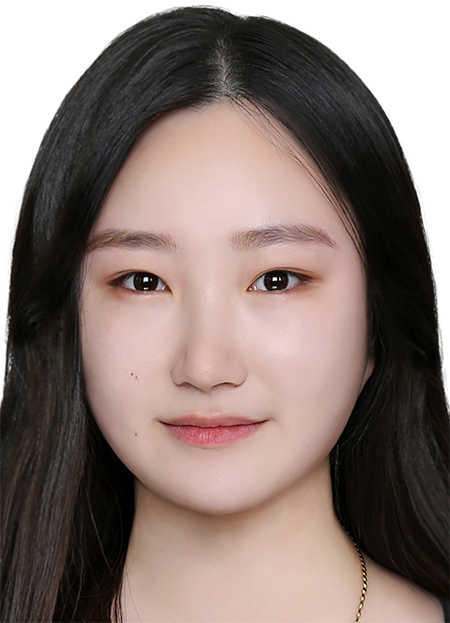Do you have the freedom to express pain? You go to an internist when you have a stomachache, otolaryngology when you have a headache and dentist when you have a toothache. Non-disabled people can express their pain and describe their symptoms clearly. But what about the disabled people? To find the answer to this question, I interviewed a dentist to get more accurate information.
With years of experience in treating both the disabled and non-disabled, Dr. Donghyeon Kim says that “disabled people need more careful treatment.”

At Dr. Kim’s dentistry, patients can receive treatment for their toothache. All dentists, for people with and without handicap, share the common purpose of providing dental treatment. However, the preparation process for handicapped patients is drastically different from those of non-handicapped patients. The so-called “disability dentists” often have to perform drug control or anesthesia on a patient with disabilities as part of their preparation. The rationale is that disabled people, who have less autonomy of their bodies, can get proper remedy safely, and doctors can focus more on the procedure itself. This administration of drugs according to the patient's condition is certainly something that is not seen in general dental clinics.
How about the fear of dental treatment? The thought of going to see one’s dentist arguably makes any person cringe, and a toothache is almost never welcomed for that reason. How does this mental aspect affect disability dentistry? Unlike non-disabled people, who can usually hold themselves together under modest stress and fear, mentally disabled people find it difficult to control their feelings under the same pressure. Disabled people who are not mentally uncomfortable and physically challenged can control their emotions to a certain extent, but those with mental disabilities find it difficult to control their emotions. This also includes those with senile neurological conditions such as Alzheimer's and Parkinson's. So I asked Dr. Kim whether there are any special efforts he has to make when treating patients with mental disabilities.
Dr. Kim says that he tries to minimize pain, fear, and anxiety when treating these patients and also makes sure they get accustomed to dental instruments. He also mentions the difficulty related to the lack of awareness in the patients with mental disabilities that they are in need of a treatment. Non-disabled people know that they need to see a doctor when they are sick, so they mentally prepare themselves for treatment, but disabled people cannot. Thus the key is that doctors should be as supportive as possible and create a comfortable atmosphere for them. He also says that he should approach all patients with a comfortable attitude.
The lack of cognitive awareness can also cause more pain for the disabled people as well. In extreme cases, they might not know the meaning of 'being sick' in the first place, which makes it harder to justify the necessity of what can be painful treatment such as cavity treatment to them. In addition, non-disabled people feel and recognize pain right away, but disabled people often fail to do so. Therefore, patients may miss the opportunity to treat a tooth before decay becomes too severe. Then, how does one notice that disabled people feel sick?
Dr. Kim says regular checkup is the most important and effective thing to do. Regular checkups at an interval of a few months make it relatively easy to spot illnesses of disabled people. Dr. Kim also says that because disabled people often have imperfect autonomy over their body and mind, guardians need to pay close attention in their daily lives. For example, guardians should make sure that the patients brush their teeth properly and monitor to make sure that they don’t feel any irregular pain. He also stresses that guardians should be mindful of the patients’ dietary patterns, which is crucial to our dental health.

Dr. Kim says that he feels the most rewarding when he sees disabled people becoming less afraid and anxious about hospitals. He also mentions that he hopes to see more and more dental clinics making themselves hospitable for people with disabilities in the future. He says he is doing his part and can only hope that his efforts will reach all his patients.

Yeonsu Claire Nam
Grade 12
Bishop Garcia Diego High School

